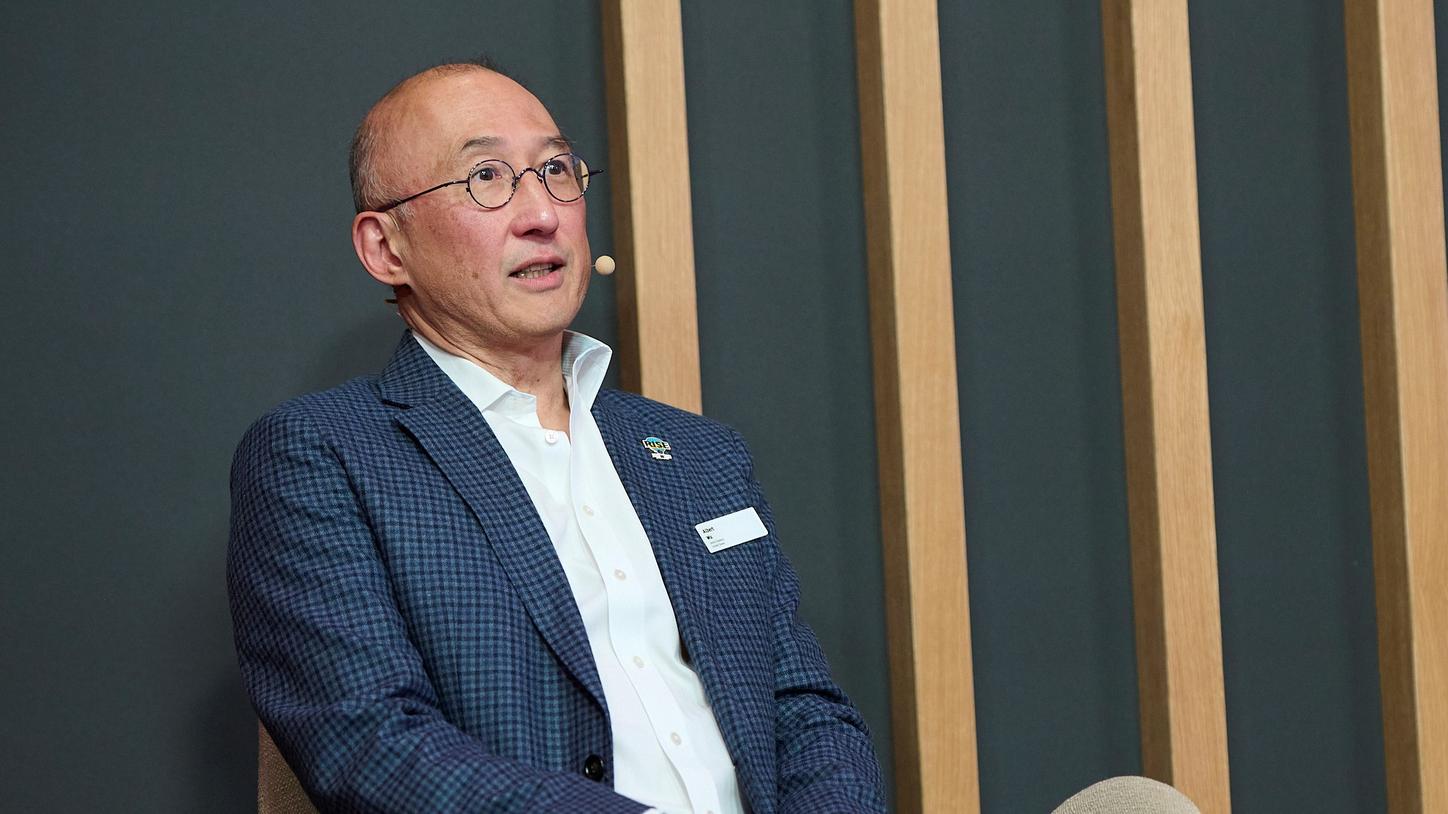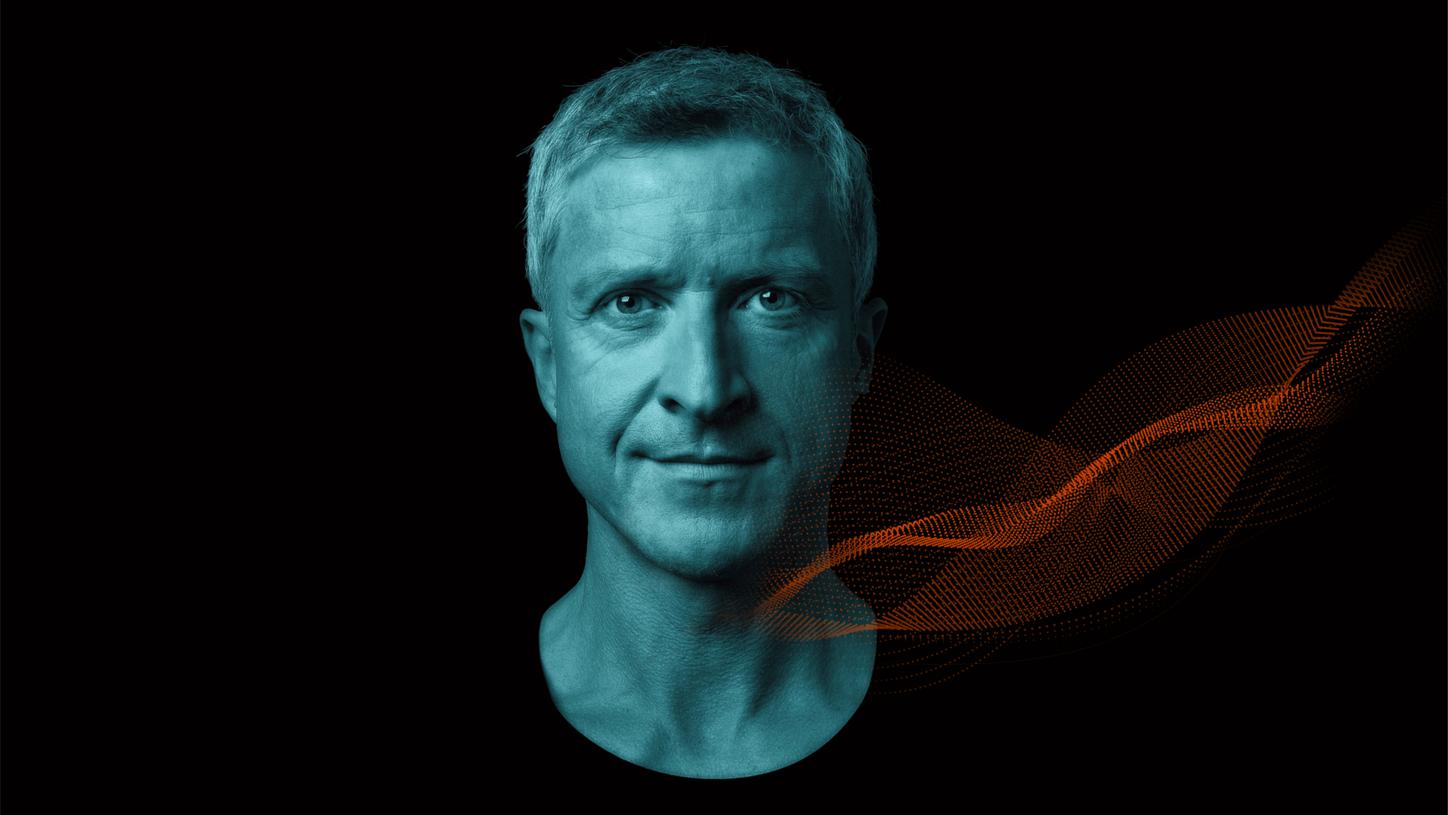Technology plays a crucial part, but the health and happiness of employees and the organization’s culture as a whole play even larger roles in ensuring that employees not just survive but flourish. The discussion shifted in the day's last panel to how to begin restoring trust not just with patients but also within the workforce, and how to reconcile a dedication to patient care with the demands of a staff shortage.

Adrienne Boissy and Albert Wu talk about how to begin restoring trust not just with patients but also within the workforce, and how to reconcile a dedication to patient care with the demands of a staff shortage.
Healthcare is not in the best shape, as described by Adrienne Boissy, Chief Medical Officer of Qualtrics and former Chief Experience Officer of Cleveland Clinic. As she observes the erosion of interpersonal connections, rising incidence of workplace violence, and a lack of psychological safety, she recognizes that the term “languishing,” coined by Adam Grant, is well applied to the current situation of the healthcare system. “Caregivers who spent their whole lives wanting to care for other people are feeling very uncared for,” Boissy said, adding that 63% of 45-years-old physicians are burnt out, an increase of 20 percentage points from 2017. “Those who are still standing and still working are particularly feeling bitter and abandoned,” said Albert Wu, Director of Johns Hopkins Center for Health Services and Outcomes Research, confirming the dire state of the healthcare workforce.
The Johns Hopkins Hospital relied on the Resilience In Stressful Events (RISE) peer-support program, established around ten years before the pandemic, to assist healthcare professionals in coping with mental distress after patient adverse events. Volunteers often listen and provide basic psychological first aid before referring the individual to more specialized services. “When COVID-19 picked up, we began to get 10 calls a day,” Wu said, noting a dramatic increase over the previous monthly average of 10 calls in a 1000-bed hospital. “And people were genuinely grateful that they finally had a chance to have someone to talk to.” That's why they rolled it out to other hospitals internationally and created training to assist them in bringing it to life. Wu observed that it is equally crucial to care for volunteers who listen to healthcare personnel, so they often gather for a short debrief in which “how are you doing?” is often the most critical question.

Adrienne Boissy, Chief Medical Officer of Qualtrics and former Chief Experience Officer of Cleveland Clinic.
Because “burnout is a systemic issue, not a personal one,” according to Boissy, “empathy has to be operationalized in organizations” to move the needle and transcend the one-on-one interaction to create resilience. To address the core of safety and quality concerns and a primary source of patient dissatisfaction, the Cleveland Clinic implemented training geared explicitly at improving internal communications. The training helped “decrease burnout, increase validated measures of empathy, and improve patient satisfaction,” as a case-control study of the program reported. Boissy also mentioned The Pause, a microbreak that allows the care team to pause for a moment of quiet in memory of a deceased patient and to recognize the team's efforts.
Insufficient rest, nutrition, and hydration are at the top of Boissy's list of challenges. Further, “empathy done well is actually hard and uncomfortable,” Boissy said, and time and balance are limiting issues since “if your own bucket as a leader is empty, you have nothing to offer.” A second hurdle is that healthcare professionals don't like to speak about themselves or seek assistance, and all of the incentives encourage them to keep their heads down if they want a good grade and reputation. According to Wu, the world needs more top-level executives who “lead by example” that should add a fourth goal—“ensure the well-being of healthcare workers”—to the three previously established goals of patient satisfaction, population health, and cost-cutting per capita. On an organizational level, executives are urged to monitor the influence of employees' mental and physical health by instituting frequent reviews and using this metric, among others, such as retention, burnout, and turnover figures.

Albert Wu, Director of Johns Hopkins Center for Health Services and Outcomes Research.
As Wu underlined, “healthcare is humans taking care of other humans,” therefore, it's important to remember that even top leaders have needs. Boissy encourages everyone, including leaders, to go through the exercise of creating their own “joy pie,” which consists of sitting down, drawing a circle, and dividing it into slices based on what a life filled with joy could look like. Leaders need to ensure they're taking care of their own “joy pie” before they can adequately care for and motivate the individuals under their charge.
Boissy, closing with several pieces of advice, quotes the essay “Getting rid of stupid stuff” to stress the importance of leaders automating tasks that can be automated in order to free up employees' time. She then adds, “digitized everything, humanize always,” to stress that technology should not be seen as a replacement for human interaction. She also recommends that leaders be more aware of trauma-informed care since continuing to discuss a traumatic event may be triggering. Last but not least, she argues that the phrase “work-life balance” misleads into thinking the achievement of a “nirvana moment” that does not exist and that, instead, it is essential to “embrace the joy of imbalance.”
The panel urged organizations to bake empathy into the process to create environments where compassion—including self-compassion—humanity and asking for assistance are seen as a sign of strength, not weakness. The numbers indicate that the current situation is not sustainable without change and that the healers themselves need care. The panelists agree that it’s crucial to help employees cope with their fears and anxieties, as well as any frustration or anger they may be experiencing, by giving them a space to debrief and express those emotions.

Further Reading: Insights Series
The Siemens Healthineers Insights Series is our preeminent thought leadership platform—carefully researched and professionally written papers drawing on the knowledge and experience of some of the world’s most respected healthcare leaders and innovators. The Series explores emerging issues and offers ideas, analysis, and practical advice on how to deliver high-value care.





